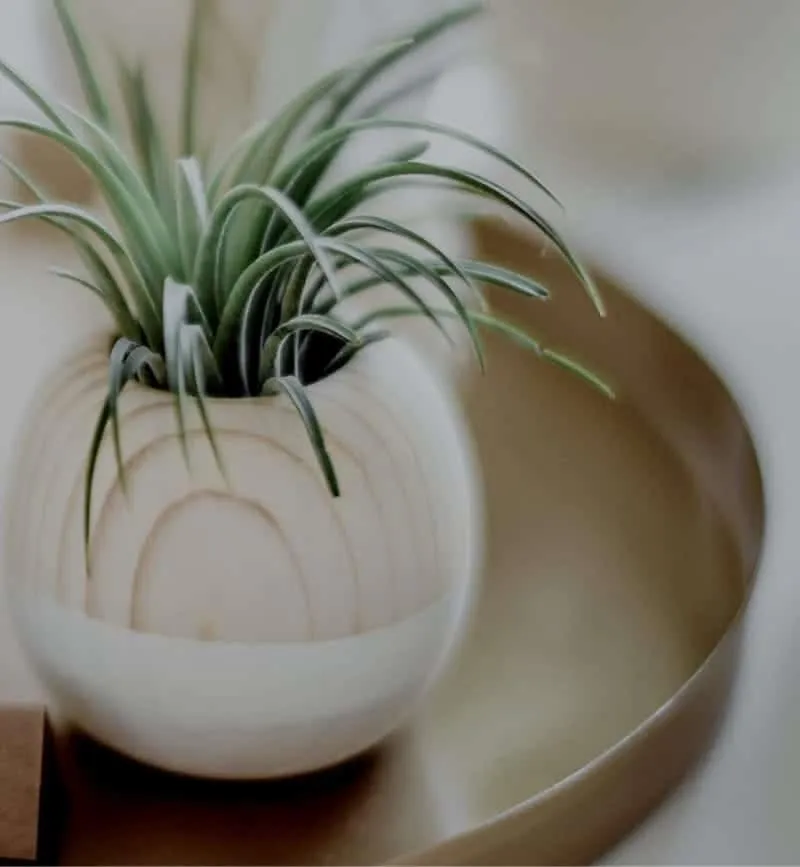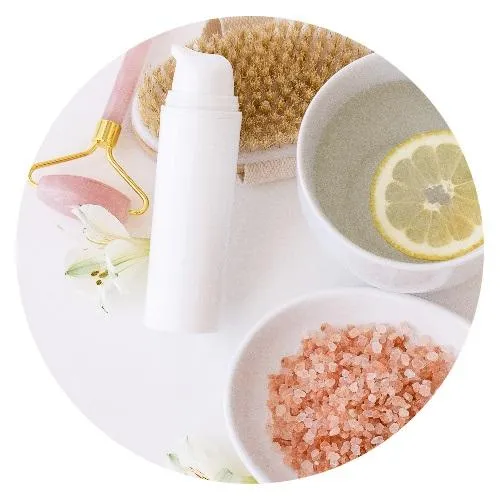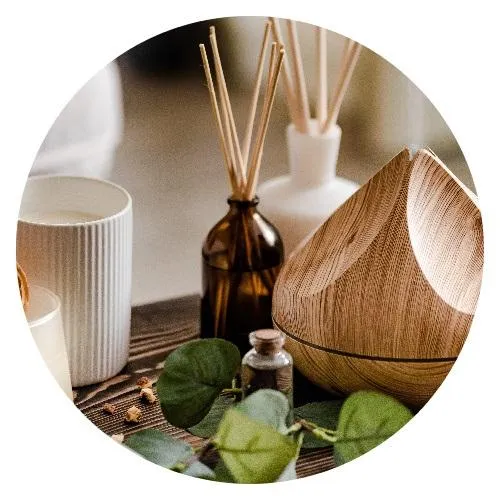
Hi! I'm Edwina.
Welcome to
my World of
Wellness.



Self-Care
Healthy Eating
Clean Beauty
Natural Health
Lifestyle
BLOG ARTICLES

HOME REMEDIES TO COMBAT DRY WINTER SKIN
Winter is a beautiful and festive time for people all over the world. However, for many, winter weather can wreak havoc because of the harsh way that drying winter air affects their skin.
If your skin suffers from the tolls of harsh cold weather conditions, read on because I will share some home remedies for dry, winter skin that will help keep it supple and hydrated during the winter months.
FYI, this post may contain affiliate links. This allows to provide valuable content for my readers and make a small commission, but at no cost to you. Read our full disclosure.
1. DRINK MORE WATER

Proper hydration is vital for not only healthy skin and hair, but it also helps keep your body organs functioning in a healthy manner. (1)
Having said that, ample hydration is one of the strongest building blocks for combatting dry, flaky, winter-worn skin. So, be sure to drink lots of water to assist your body in rewarding you with glowing skin and overall optimum health.
Also, eat foods that are high in water content like celery, lettuce, cucumbers, and citrus fruits (providing you have no allergies to any of these). You’ll not only increase your water intake, but you’ll also benefit from the natural vitamins and minerals present in these foods which your body needs to thrive in this earth.
2. PLANT-BASED OILS FOR HEALTLHY SKIN

There are several plant-based oils that deliver an array of skin-loving benefits that can protect your skin from the harshness of winter. Plant-based oils (also known as carrier oils) envelope your skin with an effective barrier to help it maintain a supple, radiant glow.
You most likely already have a few skin care products on hand. If so, try adding a small amount of plant-based oils to your current skin care products to enhance that product’s effectiveness. Waste not, want not.
However, for a deeper understanding of how specific carrier oils can benefit your skin when used at full strength, read my brief discussion below on some of the most commonly used carrier oils in natural skincare.
OLIVE OIL

One of my favorite oils for skin care is olive oil. This oil is one of the most versatile and effective oils for healthy skin.
Olive oil has a slightly thick consistency and contains a hefty amount of saturated fats. These types of fats are excellent for both lubricating the skin and for plumping up skin cells, giving it a smoother and velvety appearance.
Olive oil also has antimicrobial properties that help to heal cellular damage to the outer layers of your skin (2). It is also anti-inflammatory, which makes it a great oil for soothing cracked, dry skin.
COCONUT OIL

Like olive oil, coconut oil is very high in saturated fats, which creates a protective shield on the skin. Coconut oil blends easily with other oils and helps assist those other oils with delivering their healing properties into the skin. (3)
Coconut oil is light weight and easily fills the space between dry skin cells. This makes it difficult for moisture to escape your skin, keeping it plumped and healthy looking. So, coconut oil is an effective barrier against cold temperatures for the skin on your BODY.
However, keep in mind that because of coconut oil’s lightweight nature, it can possibly cause clogged pores on your FACIAL skin. So, if you struggle with acne, you may want to forego using coconut oil on your face as a moisturizer. (4)
APRICOT KERNEL OIL

Apricot kernel oil is another carrier oil of choice for my natural skin care kit. Apricot kernel oil is rich in vitamin A, which, in the beauty industry, is used as retinol.(5)
Retinol is a popular ingredient that helps to reduce the appearance of fine lines and wrinkles on the skin. Apricot kernel oil is also loaded with nourishing fatty acids which provide a protective barrier against moisture loss from the skin.
It conditions your skin by leaving a natural sheen without feeling greasy. The reason is that, as a natural, plant-based oil, your skin will assimilate it easily, allowing for effective absorption to stave off the negative effects of colder, arctic temperatures.
3. MORE NATURAL SKIN CARE INGREDIENTS TO PROTECT YOUR SKIN IN WINTER
Below is a quick discussion about other skin-nurturing ingredients that you most likely have in your cabinets at home. Each can be used to help protect your skin against cold weather.
HONEY AS A NATURAL FACIAL MASK

Were you aware that the natural sweetener, honey, is a humectant that is full of antioxidants? (6) These two qualities make honey a perfect candidate as a nutrient-dense facial mask.
Antioxidants are free radicals that wreak havoc on cells within our bodies. So, when you apply honey to your facial skin, you help protect your skin from damage caused by free radicals.
TIP: To help make your honey facial mask even more effective, blend half a teaspoon of virgin and organic coconut oil with a tablespoon of organic honey. Then, apply a generous layer to your skin.
Coconut oil is also full of antioxidants and essential fatty acids. So, when you mix coconut oil and honey together, the coconut oil helps to soften your skin even further and helps the honey’s natural enzymes to remove more dead skin cells.
Rinse off with warm water at pat dry with a clean, soft wash cloth. You’ll love how your skin feels after this decadent, spa-like treatment! Be sure to do a skin patch test prior to using honey on your skin to ensure you will not have an allergic reaction.
ALOE VERA GEL

Known for its nourishing properties, aloe vera gel shines as a stand-alone skin care essential. It can also be blended with other ingredients to create an effective skin care formulation.
Aloe vera contains copious amounts of water, which makes it a great skin moisturizer. It also contains healing properties such as glycoproteins and polysaccharides which promote skin regeneration. (7)
Aloe vera also contains vitamins A, C, and E…all of which are potent antioxidants that help slow the aging process of the cells of your body, (8) leading you to healthier and younger looking skin.
Try blending a bit of organic aloe vera gel with your favorite facial moisturizer to deliver its healing virtues to the skin on your face and neck.
SHEA BUTTER - SKIN'S SUPER HERO

Shea Butter is one of the most popular ingredients in skin care. Due to its thick consistency, shea butter is a wonder as a natural, dry skin remedy.
Shea butter also helps your skin produce collagen (9), which is the connective tissue that helps keep skin taut and youthful looking.
Studies also show that shea butter contains anti-inflammatory properties, which can help promote wound healing and reduce redness of dry, inflamed winter skin. (10)
Due to its naturally thick consistency, I suggest you add a bit of olive oil to your chunk of shea butter to help make it a bit easier to spread on your skin.
Simply combine a tablespoon of olive oil with a half cup of shea butter and apply to your body after your bath or shower. Then enjoy its softening and soothing benefits.
SHEA BUTTER FOR YOUR FEET
Do you have a hard time removing callouses and hard layers of dry skin from your feet?
An effective treatment against this is to massage the bottoms and heels of your feet with a pumice stone at the end of your shower or bath before you go to bed at night.
This will assist in easily removing the hydrated layers of dead skin from your feet.
Afterwards, apply a generous layer of shea butter to your feet and cover them with socks made of soft, breathable cotton. You will be pleased with the look and condition of your feet the next morning.
SHEA BUTTER FOR YOUR LIPS
Here is a tip on how to combat dry lips in the winter.
Dampen your lips with a moist washcloth and gently massage the cloth across your lips to remove any loosened, flaky skin.
Then, apply a layer of shea butter to your lips. You will be pleased at how soft and smooth your lips will become.
4. DO NOT SKIP SUNSCREEN IN THE WINTER

You may not believe that you need to wear sunscreen during the winter months, but protecting your skin from UV rays in the winter is just as important as protecting your skin during the hot, summer months.(11)
The sun is always blasting forth its powerful rays in the sky, even when it is behind cloud coverage. Research has shown that more than 80% of the sun’s UV rays can pass through the clouds with ease. (12)
We should be cognizant of this because moist winter air (in the form of frost and snow) can refract light and amplify the UV rays' impact our skin.
Be sure to cover your facial skin with enough sunscreen to protect the more vulnerable areas like the top of your nose and forehead.
When UV light continually hits the skin, it can cause biological oxidation which, in turn, can cause premature aging. (13)
CONCLUSION ON NATURAL WINTER SKIN CARE
Using plant-based ingredients to care for your skin in winter is a gentle and effective way to maintain its healthy and supple condition.
By prioritizing nature-based solutions, you support your skin’s natural moisture barrier, which ensures your skin stays hydrated, radiant, and resilient all season long.
Join My Wellness List.
DISCLAIMER
The content on this website is for informational purposes only and has not been evaluated by the FDA. It is not intended to treat, cure, prevent, or diagnose any illness or disease. Always consult with your licensed medical professional prior to incorporating any of the suggestions or comments herein or regarding any health issues you may have.
Copywrite 2024 Clean and Pure Life | All rights reserved.




